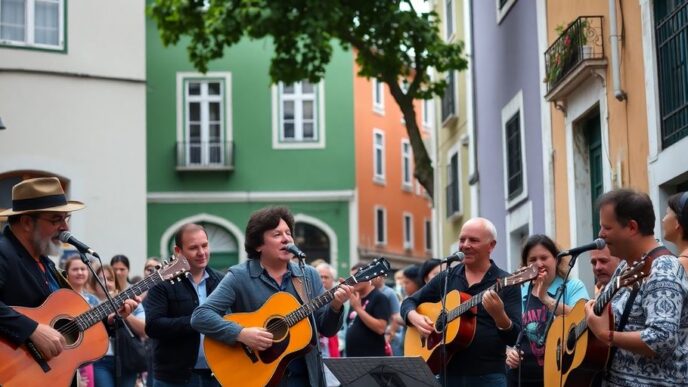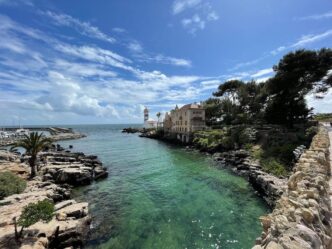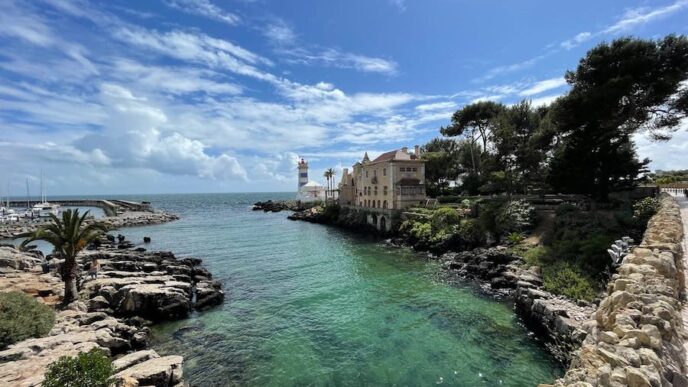Choosing the Right Resources for Learning European Portuguese
Learning European Portuguese can be both fun and rewarding. With the right resources, you can make the process easier and more enjoyable. Here are some tips on choosing the best tools for your language journey.
Understanding the Differences Between Brazilian and European Portuguese

Pronunciation Variations
One of the most noticeable differences between Brazilian and European Portuguese is the pronunciation. In European Portuguese, the pronunciation tends to be more closed and muted, while Brazilian Portuguese is more open and melodic. For example, the letter ‘s’ at the end of a word is pronounced as ‘sh’ in European Portuguese but as ‘s’ in Brazilian Portuguese.
Vocabulary Differences
The vocabulary between the two versions of Portuguese can also differ significantly. Some words used in Brazil might not be understood in Portugal and vice versa. For instance, the word for ‘bus’ is ‘ônibus’ in Brazil but ‘autocarro’ in Portugal. These differences can sometimes lead to confusion, so it’s important to learn the vocabulary specific to the region you plan to visit or live in.
Why European Portuguese is Better for Tourists
If you’re planning to visit Portugal, learning European Portuguese is more practical. While Brazilian Portuguese is widely understood, speaking the local dialect can make your interactions smoother and more enjoyable. Locals appreciate the effort and it can make your experience more immersive. Plus, it helps in navigating public services like hospitals and tax offices, where staff may respond more positively when addressed in European Portuguese.
Effective Online Tools for Learning European Portuguese
Learning European Portuguese can be fun and engaging with the right online tools. Here are some of the best resources to help you on your journey.
Practice Portuguese Website
The Practice Portuguese website is a fantastic resource for learners at all levels. It offers a variety of videos and podcasts produced by a Canadian/Portuguese team. You can listen to native speakers and even control the speed of the audio. While the podcasts are free, a small subscription fee gives you access to transcriptions and other premium features. The site also includes a glossary of shortened words to help you sound more like a local.
YouTube Channels with Native Speakers
YouTube is a treasure trove of language learning content. There are several channels dedicated to teaching European Portuguese. These channels often feature native speakers, providing you with an authentic learning experience. The videos cover everything from basic vocabulary to complex grammar rules, making it easier to grasp the language.
Podcasts and Audio Resources
Podcasts are an excellent way to immerse yourself in the language. There are many podcasts specifically designed for learning European Portuguese. For example, the Portuguese Lab Podcast offers lessons that focus on both language and cultural integration. Listening to these podcasts can help you improve your listening skills and get a feel for the natural flow of the language.
Mastering Basic Portuguese for Tourists

Essential Phrases for Travel
When traveling in Portugal, knowing some essential Portuguese phrases can make your trip smoother. Here are a few to get you started:
- Um café – a coffee
- Água – water
- Vinho – wine
- Cerveja – beer
- Pequeno-almoço – breakfast
- Almoço – lunch
- Jantar – dinner
- Tenho uma reserva – I have a reservation
Common Vocabulary for Shopping and Dining
Shopping and dining are common activities for tourists. Here are some useful words:
- Quanto custa? – How much does it cost?
- A conta, por favor – The bill, please
- Onde está o banheiro? – Where is the bathroom?
- Entrada – appetizer
- Prato principal – main course
- Sobremesa – dessert
Simple Greetings and Introductions
First impressions matter, so knowing how to greet people is important. Here are some simple greetings and introductions:
- Olá – Hello
- Bom dia – Good morning
- Boa tarde – Good afternoon
- Boa noite – Good evening
- Como está? – How are you?
- Meu nome é… – My name is…
- Prazer em conhecê-lo – Nice to meet you
Tips for Improving Your Portuguese Pronunciation
Listening to Native Speakers
One of the best ways to improve your pronunciation is by listening to native speakers. This helps you understand the natural flow and rhythm of the language. You can find plenty of resources online, such as podcasts, YouTube videos, and language learning apps that feature native speakers. Portuguese pronunciation can be tricky, but with these tips from teacher and native speaker Rute, you will have the knowledge you need to master it!
Practicing with Language Partners
Practicing with language partners is another effective method. You can find language exchange partners through websites like HelloTalk, Tandem, or MyLanguageExchange.com. Speaking with a partner allows you to get real-time feedback and helps you become more comfortable with speaking Portuguese in a conversational setting.
Using Pronunciation Guides and Videos
Pronunciation guides and videos can be incredibly helpful. These resources often break down the sounds of the language and provide tips on how to produce them correctly. Websites like Practice Portuguese offer detailed guides and videos that focus on the specific sounds of European Portuguese. Use these and you can be confident that your attempts to imitate the native speaker’s pronunciation are at least a step in the right direction.
Immersive Techniques to Learn European Portuguese
Learning European Portuguese can be a fun and rewarding experience, especially when you immerse yourself in the language and culture. Here are some effective techniques to help you get started:
Watching Portuguese TV Shows and Movies
One of the best ways to immerse yourself in the language is by watching Portuguese TV shows and movies. This not only helps you get used to the native speaker’s pronunciation but also gives you a glimpse into the culture and daily life in Portugal. Try to watch with subtitles in Portuguese to improve your reading skills as well.
Participating in Language Exchange Programs
Language exchange programs are a fantastic way to practice speaking with native speakers. You can find these programs online or in your local community. By engaging in conversations, you’ll learn how to use the language in real-life situations and pick up on colloquial expressions and slang.
Visiting Portugal for Real-Life Practice
If you have the opportunity, visiting Portugal is an excellent way to immerse yourself in the language. While there, try to interact with locals as much as possible. Whether you’re ordering food, asking for directions, or just chatting with someone, every interaction will help you improve. Plus, you’ll get to experience the rich culture and hospitality of the Portuguese people, making your learning journey even more enjoyable.
Setting Realistic Goals and Expectations
Understanding the Time Commitment
Learning a new language takes time and effort. It’s important to set realistic expectations about how long it will take to become proficient. For example, reaching a basic conversational level might take a few months of consistent practice, while achieving fluency could take years. Be patient with yourself and understand that progress will come with time.
Tracking Your Progress
Keeping track of your progress can help you stay motivated. Consider setting small, achievable goals, such as learning a certain number of new words each week or being able to hold a short conversation. Use a journal or an app to record your achievements and reflect on how far you’ve come.
Staying Motivated Throughout the Learning Process
Staying motivated is key to language learning success. Find ways to keep yourself engaged, such as joining a study group, practicing with a language partner, or rewarding yourself for reaching milestones. Remember, learning a language is a journey, and it’s important to enjoy the process as much as the end result.
Frequently Asked Questions
Is European Portuguese very different from Brazilian Portuguese?
Yes, European Portuguese and Brazilian Portuguese have noticeable differences in pronunciation, vocabulary, and some grammar rules. While they are mutually intelligible, learning the version specific to the region you plan to visit or live in is beneficial.
What are some free resources for learning European Portuguese?
There are several free resources available, such as the Practice Portuguese website, Digital Dialects, and various YouTube channels with native speakers. These can help you get started with basic vocabulary and phrases.
How long does it take to learn European Portuguese?
The time it takes to learn European Portuguese varies. For beginners, reaching an A2 level (upper beginner) may take a few months to a year of consistent study. Achieving fluency can take longer, often requiring daily practice over several years.
Can I use Brazilian Portuguese resources to learn European Portuguese?
While you can use Brazilian Portuguese resources, it’s better to focus on European Portuguese if you plan to visit or live in Portugal. The differences in pronunciation and vocabulary can make it challenging to switch between the two.
What are some effective ways to practice Portuguese pronunciation?
Listening to native speakers, practicing with language partners, and using pronunciation guides and videos can significantly improve your Portuguese pronunciation. Immersing yourself in the language through TV shows, movies, and podcasts also helps.
Why is it important to learn European Portuguese if I plan to visit Portugal?
Learning European Portuguese is crucial if you plan to visit Portugal because it helps you communicate more effectively with locals. It also shows respect for the local culture and can make your travel experience more enjoyable and less frustrating.













